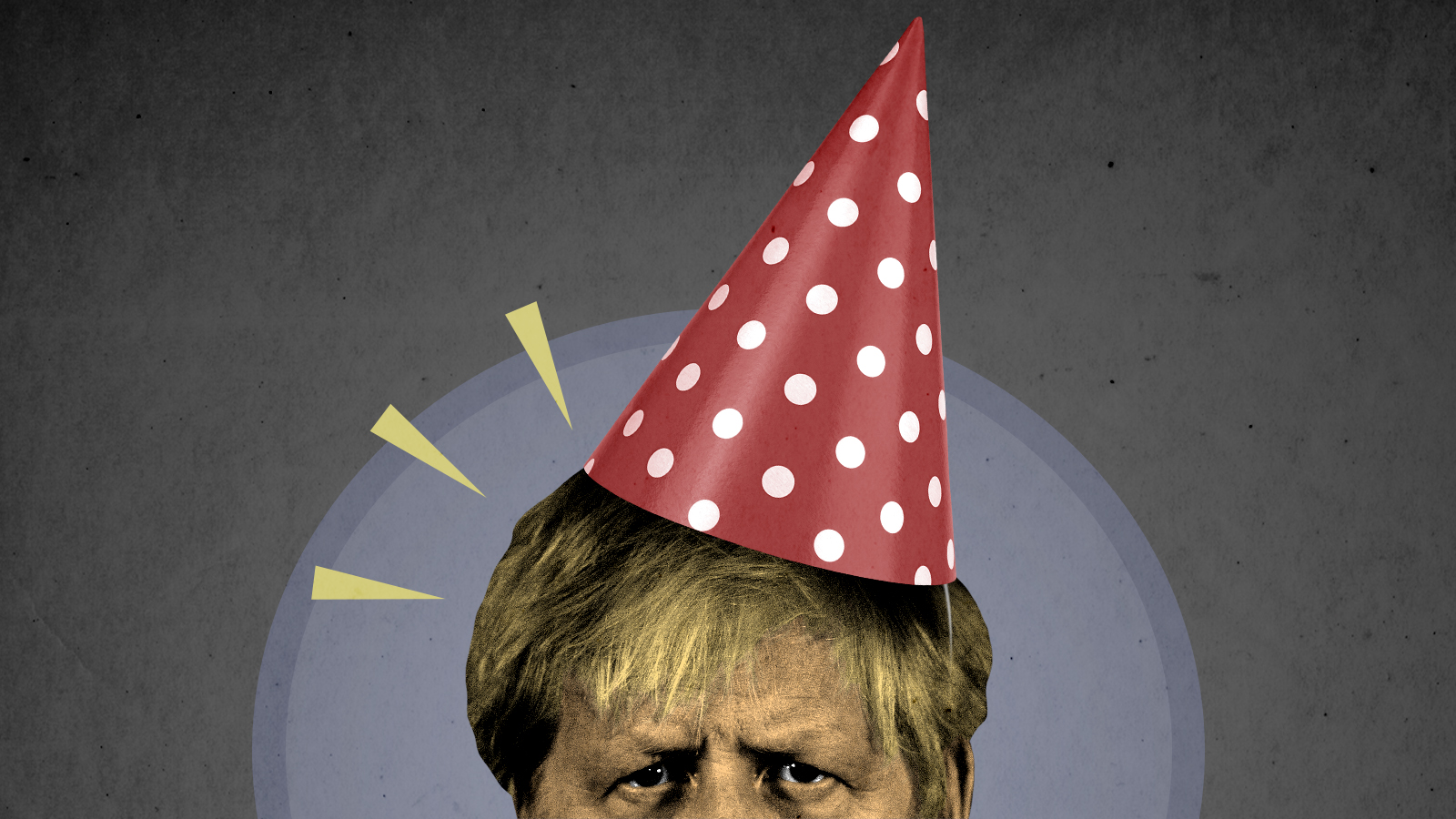Boris Johnson and elites' bizarre oblivion to their own pandemic indecency


A free daily email with the biggest news stories of the day – and the best features from TheWeek.com
You are now subscribed
Your newsletter sign-up was successful
British politics are different. While American politicians tend to hold onto their jobs until — and sometimes even after — they face charges for actual crimes, British officials are routinely forced out or resign for comparably minor lapses of behavior or judgment.
That's why U.K. Prime Minister Boris Johnson, a Conservative, is in bigger trouble than an American president would be in his place. On Wednesday, he apologized in Parliament for attending a cocktail party at his Downing Street residence in May 2020, when Britons faced tight COVID-19 restrictions against socializing. Although the story has been circulating for weeks, Johnson tried to defer questions about the incident until an internal investigation is complete. His recent statement is an attempt at damage control as public opinion continues to turn against him.
Despite his mounting unpopularity, Johnson probably won't be ousted by his party, which includes no obvious successor. But his situation should be a warning to public figures around the world who still don't understand why so many people are so angry about lockdowns, school closures, mask requirements, and other public health mandates.
The Week
Escape your echo chamber. Get the facts behind the news, plus analysis from multiple perspectives.

Sign up for The Week's Free Newsletters
From our morning news briefing to a weekly Good News Newsletter, get the best of The Week delivered directly to your inbox.
From our morning news briefing to a weekly Good News Newsletter, get the best of The Week delivered directly to your inbox.
It's just not about the psychological, logistical, and economic costs — real as they are. Rather, many of us are enraged by the sense that there's one rule for the rich and powerful and another for everyone else. Technical excuses, like Johnson's claim that he believed the party was a (permitted) work event rather than a (banned) social occasion, simply don't cut it.
And it doesn't have to be this way. An older generation of leaders made a point of sharing the hardships of their people even when they could have avoided those burdens. The most damning indictment of Johnson's conduct isn't the rhetoric of Labour leader Keir Starmer, who's trying to use Johnson's lapses to revive the fortunes of his own demoralized party. It's photographs of Queen Elizabeth sitting masked and alone at the 2021 funeral of Prince Philip, her husband of 73 years.
CORRECTION: A previous version of this post misstated the month of the party. It has been corrected. We regret the error.
A free daily email with the biggest news stories of the day – and the best features from TheWeek.com
Samuel Goldman is a national correspondent at TheWeek.com. He is also an associate professor of political science at George Washington University, where he is executive director of the John L. Loeb, Jr. Institute for Religious Freedom and director of the Politics & Values Program. He received his Ph.D. from Harvard and was a postdoctoral fellow in Religion, Ethics, & Politics at Princeton University. His books include God's Country: Christian Zionism in America (University of Pennsylvania Press, 2018) and After Nationalism (University of Pennsylvania Press, 2021). In addition to academic research, Goldman's writing has appeared in The New York Times, The Wall Street Journal, and many other publications.
-
 The week’s best photos
The week’s best photosIn Pictures An explosive meal, a carnival of joy, and more
-
 The ‘ravenous’ demand for Cornish minerals
The ‘ravenous’ demand for Cornish mineralsUnder the Radar Growing need for critical minerals to power tech has intensified ‘appetite’ for lithium, which could be a ‘huge boon’ for local economy
-
 Why are election experts taking Trump’s midterm threats seriously?
Why are election experts taking Trump’s midterm threats seriously?IN THE SPOTLIGHT As the president muses about polling place deployments and a centralized electoral system aimed at one-party control, lawmakers are taking this administration at its word
-
 Big-time money squabbles: the conflict over California’s proposed billionaire tax
Big-time money squabbles: the conflict over California’s proposed billionaire taxTalking Points Californians worth more than $1.1 billion would pay a one-time 5% tax
-
 Did Alex Pretti’s killing open a GOP rift on guns?
Did Alex Pretti’s killing open a GOP rift on guns?Talking Points Second Amendment groups push back on the White House narrative
-
 Washington grapples with ICE’s growing footprint — and future
Washington grapples with ICE’s growing footprint — and futureTALKING POINTS The deadly provocations of federal officers in Minnesota have put ICE back in the national spotlight
-
 Trump’s Greenland ambitions push NATO to the edge
Trump’s Greenland ambitions push NATO to the edgeTalking Points The military alliance is facing its worst-ever crisis
-
 Why is Trump threatening defense firms?
Why is Trump threatening defense firms?Talking Points CEO pay and stock buybacks will be restricted
-
 The billionaires’ wealth tax: a catastrophe for California?
The billionaires’ wealth tax: a catastrophe for California?Talking Point Peter Thiel and Larry Page preparing to change state residency
-
 Trump considers giving Ukraine a security guarantee
Trump considers giving Ukraine a security guaranteeTalking Points Zelenskyy says it is a requirement for peace. Will Putin go along?
-
 Bari Weiss’ ‘60 Minutes’ scandal is about more than one report
Bari Weiss’ ‘60 Minutes’ scandal is about more than one reportIN THE SPOTLIGHT By blocking an approved segment on a controversial prison holding US deportees in El Salvador, the editor-in-chief of CBS News has become the main story
